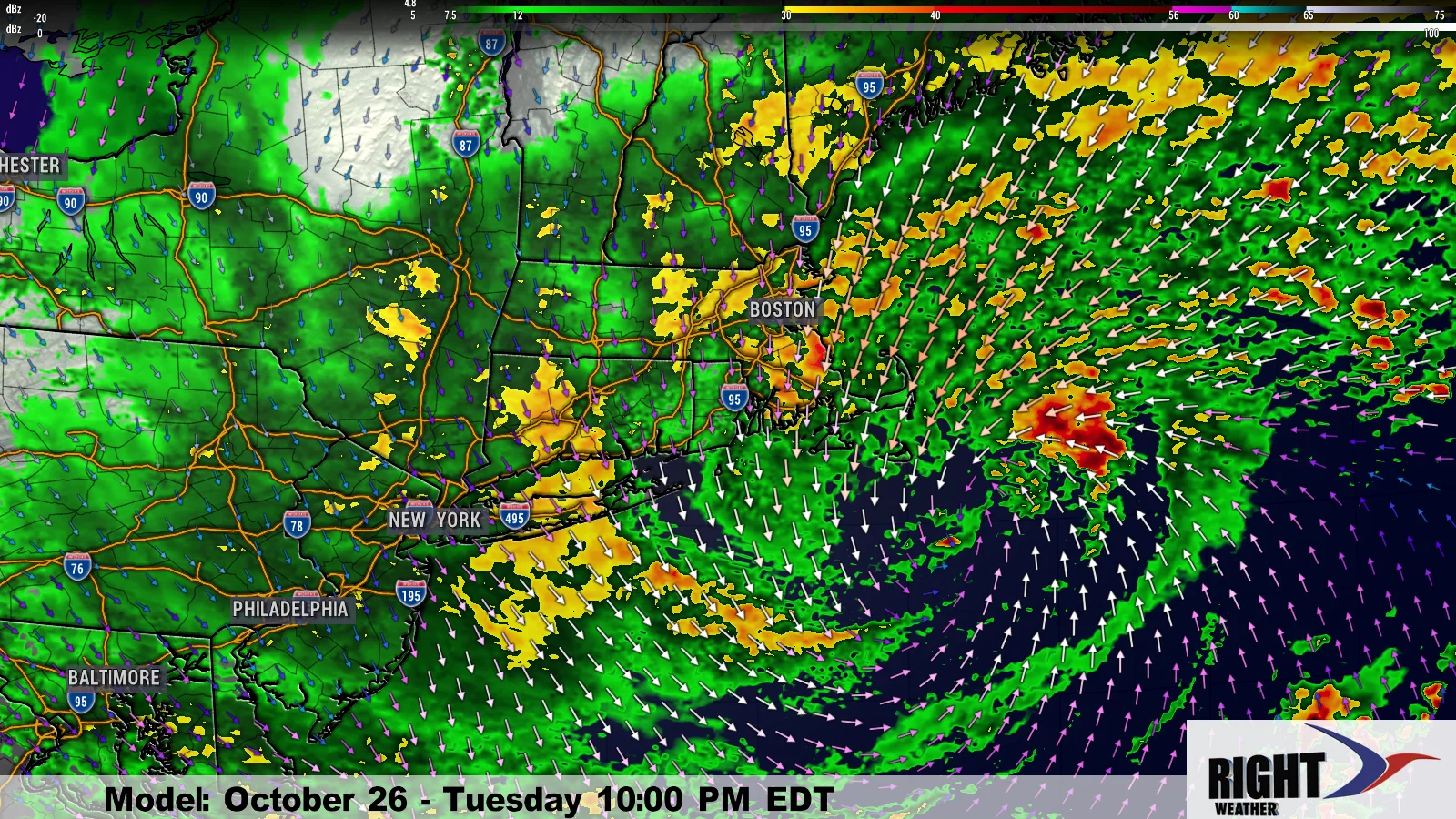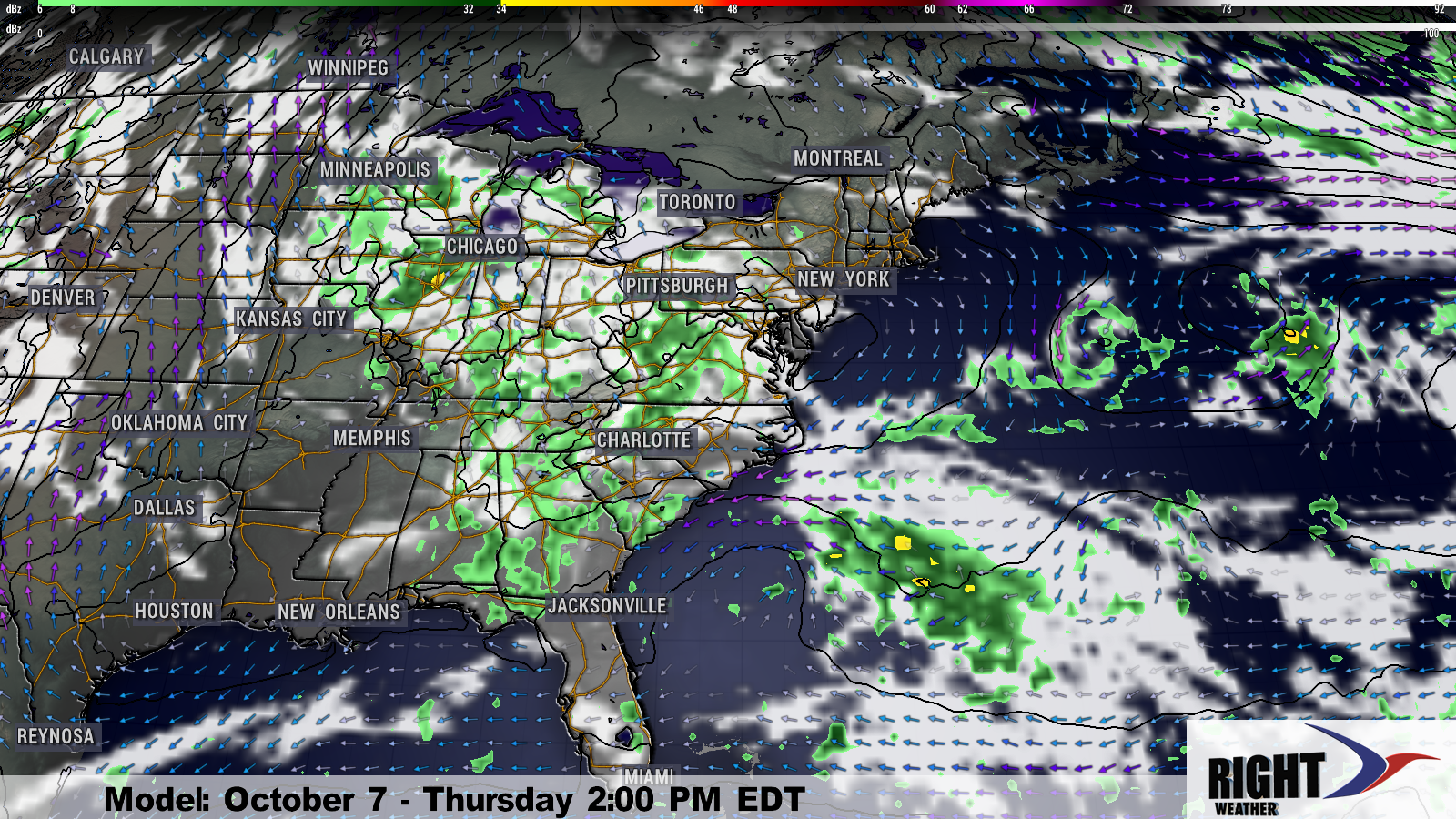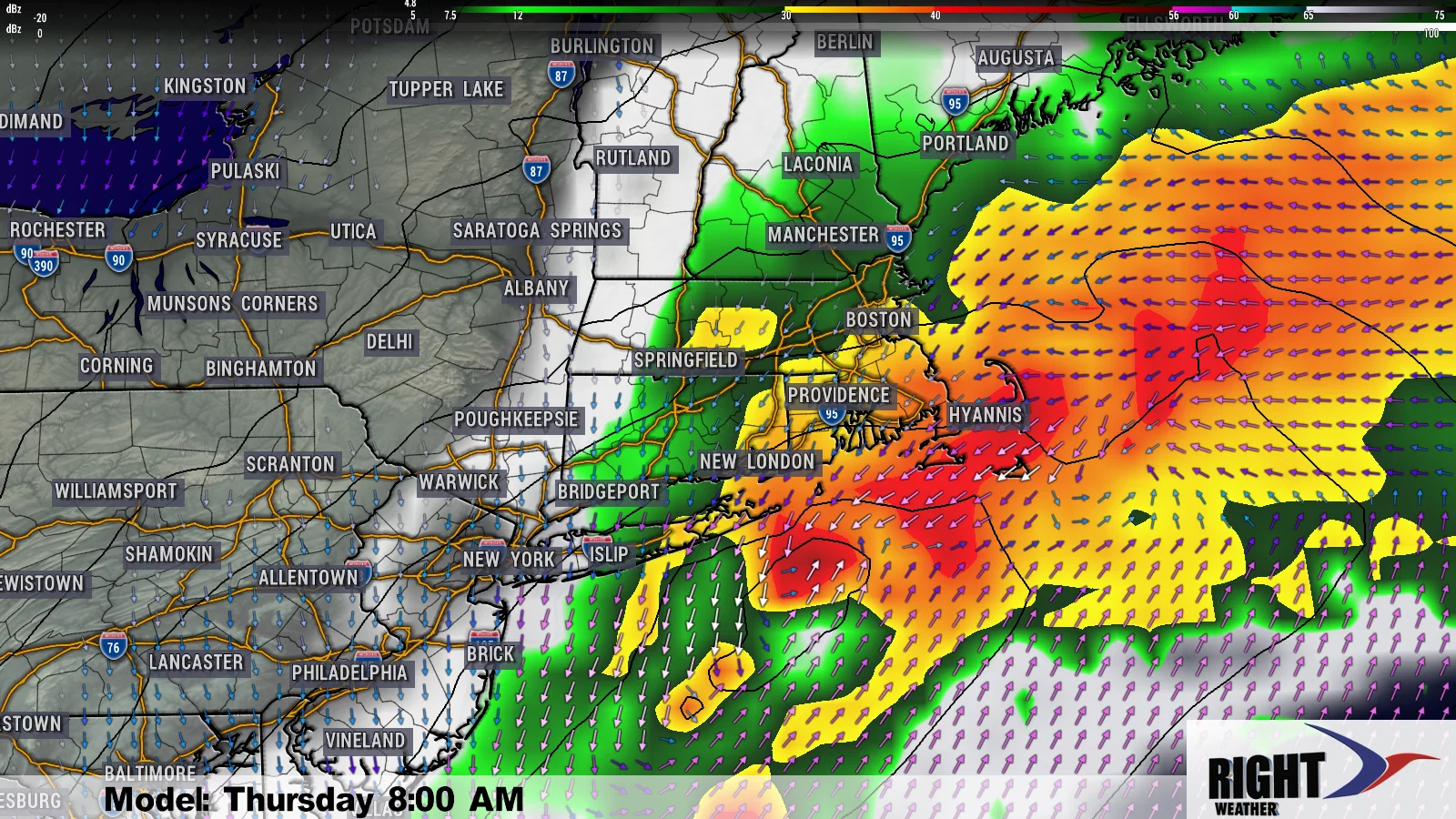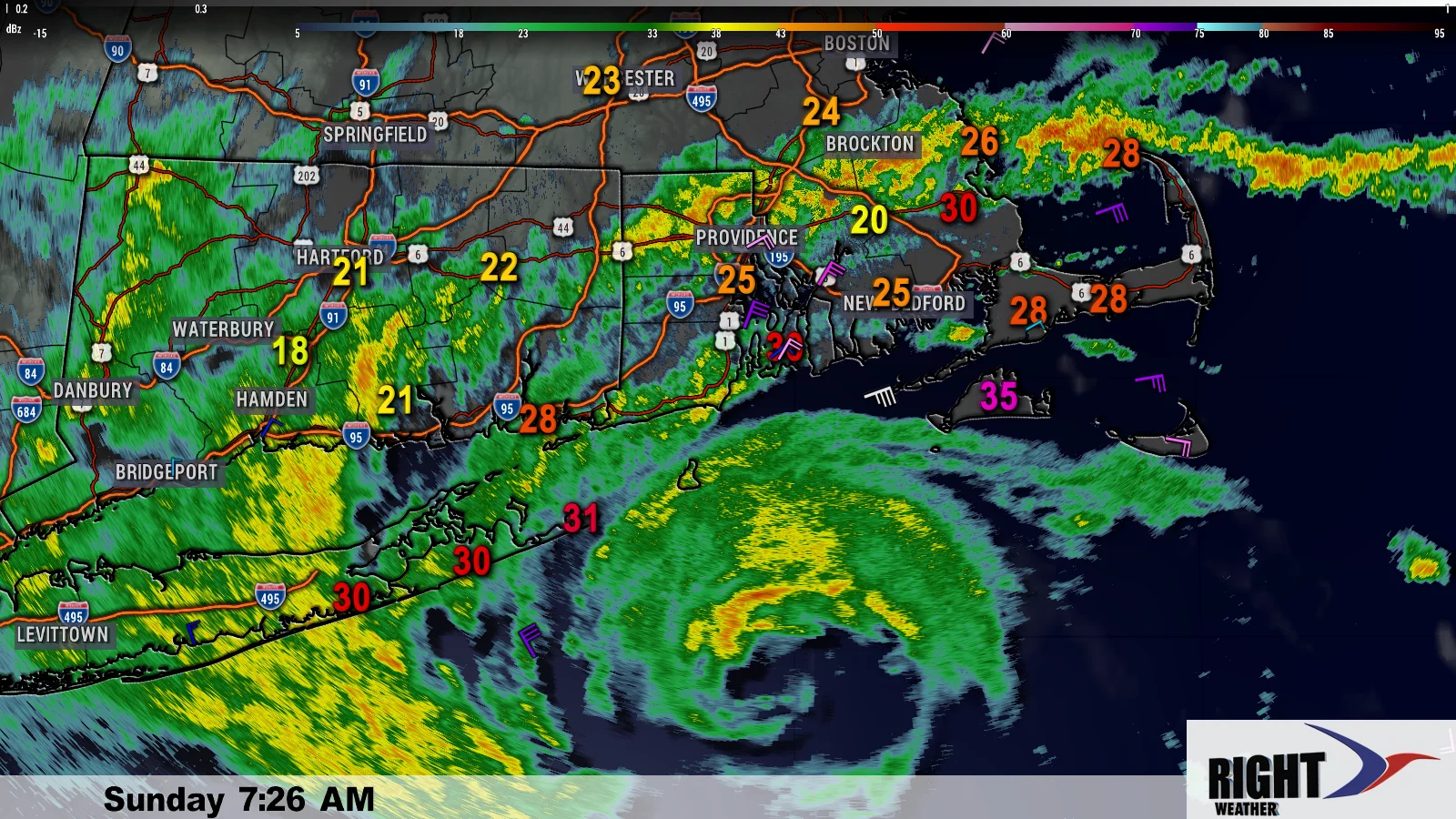Length of heat waves should be considered in record keeping

Earlier this week we posted some heat wave statistics for Southern New England. The statistics focus on the number of heat waves per year, along with the length of each heat wave. With the prospect of a sea breeze interrupting the heat wave in Providence and Boston on Wednesday, it dawned on us that the way heat waves are tabulated may not tell the entire story. For instance, let’s say the heat wave in Providence is broken on Wednesday then a new one starts on Thursday that lasts through Saturday. Providence will go in the record books with two heat waves this week, while other places, like Hartford, will only have one heat wave – even though it was seven days long.
We think it makes more sense to count each three consecutive day stretch as a heat wave, so a six-day heat wave is actually two heat waves. An even better way to tabulate heat waves for a given area is to add an additional 1/3 of a heat wave for each day past three consecutive days. By that logic, assuming Providence does not reach 90° on Wednesday, the heat wave total for the week would look like this:
Providence
90°+ 7/15-7/17 and 7/19-7/21 = 2 heat waves
Hartford
90°+ 7/15-7/21 = 2.33 heat waves
Using the data from 2000-2012 and the current way of tabulating heat waves, the Hartford area has had 36 heat waves – an average of 2.77 per year. Factoring in the length of the heat waves and using our proposed method of accounting for heat waves, the total rises to 3.81 per year – an increase of 37.5%.
In Boston, however, where extended heat waves are less likely because of fickle sea breezes, the total does not change as much. There were 19 heat waves from 2000-2012 – an average of 1.46 per year. Factoring in the length of the heat waves and using our proposed method, the total rises to 1.72 per year – an increase of 18%.
Clearly, Hartford has been much more susceptible than Boston to long stretches of hot weather since 2000. While it is evident using the current method of tabulating heat waves, it becomes even more pronounced when using our proposed method.



